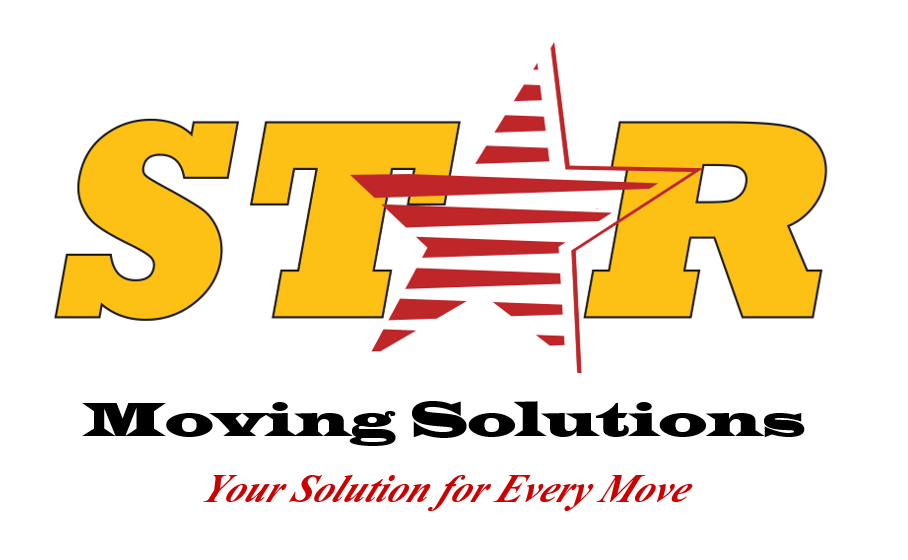When thinking about the expenses connected to leasing a storage unit, it’s critical to factor in various elements that can affect the normal cost. In this thorough guide, we’ll examine the different elements that affect storage unit costs and provide you with helpful information to make an educated decision.
We’ll delve into climate-controlled vs non-climate-controlled units, price variations based on location and size, as well as deals and promotions available at various facilities. Furthermore, we’ll discuss vehicle storage options offered by top companies in the industry.
Average Cost of Renting a Storage Unit
The average cost of renting a storage unit is about $180 per month, with climate-controlled units costing around $190 per month. The price of renting a storage unit can range from $1 to $1.80 per square foot, depending on the location and size. Comparing prices across multiple facilities can help you find the best deal possible.
Climate-controlled vs Non-climate Controlled Units
Climate-controlled units maintain stable temperature and humidity levels, protecting your belongings from extreme weather conditions or moisture damage. On the other hand, non-climate-controlled units are more affordable but may not provide adequate protection for sensitive items.
Price Variations Based on Location and Size
- Urban areas typically have higher rental rates due to increased demand and limited space availability.
- Larger storage units usually cost more than smaller ones, yet they give greater adaptability with respect to putting away different sorts of things.
When considering storage options, it’s important to keep in mind that in addition to monthly costs, there may be administration fees and additional fees for things like insurance or late payments. Be sure to read the fine print and ask your storage company about any potential extra costs.
Overall, renting a storage unit can be a convenient solution for those in need of extra space. By understanding the average storage unit cost and the factors that affect it, you can make an informed decision about which unit size and type is right for you.
The expense of renting a storage unit can differ greatly depending on size and location, so it’s essential to investigate all potential choices. Additionally, there are many deals and promotions that can help reduce costs when looking for a storage unit; understanding how to effectively collect multiple quotes is key to finding the best deal.
Deals and Promotions for Storage Units
Finding the best value when renting a storage unit can be made easier by keeping an eye out for popular deals and promotions. Many facilities offer online discounts, which can significantly reduce your monthly costs.
Online Discounts Available at Various Facilities
When searching for a suitable facility, check their website or online listings to see if they have any current promotional offers. Some companies may provide first-month free rent, discounted rates, or even waived administration fees as part of their online specials.
How to Collect Multiple Quotes Effectively
- Research: Start by researching different storage providers in your area using search engines or local directories.
- Contact: Reach out to multiple facilities via phone or email requesting quotes based on your specific needs.
- Analyze: Compare the received quotes and available promotions side-by-side before making an informed decision on which company provides the most value for money.
Taking advantage of deals and promotions when looking for a storage solution can be beneficial in terms of cost savings. Now let’s explore different vehicle storage options that are available on the market today.

Vehicle Storage Options
If you’re considering renting a self-storage unit, don’t forget about vehicle storage options. These specialized spaces have an average monthly cost of approximately $210 and can be found at companies like Extra Space Storage and CubeSmart, which offer some of the lowest rates in the industry.
Types of Vehicle Storage Options (Indoor, Outdoor)
- Indoor: Provides maximum protection from weather conditions and potential theft.
- Outdoor: Offers more affordable rates but less protection from elements or vandalism.
Vehicle storage options are essential for keeping your vehicle safe and secure. When selecting a car storage solution, it is important to consider the security features available in the facility.
Security Measures in Self-Storage Facilities
Choosing a self-storage facility with adequate security measures is essential to protect your belongings. Top companies like U-Haul offer various sizes up to 50 square feet equipped with essential amenities such as video surveillance and extra lighting.
Importance of Video Surveillance Systems in Self-Storage Facilities
Video surveillance systems play a vital role in deterring theft and vandalism at storage facilities. They provide real-time monitoring, allowing facility managers to quickly respond to any suspicious activity. Additionally, they can serve as evidence for insurance claims or legal disputes.
Benefits of Well-Lit Areas within Your Chosen Facility
A well-lit storage unit not only makes it easier for you to locate items but also contributes significantly towards enhancing overall security levels by discouraging potential intruders from attempting break-ins. Therefore, always prioritize facilities that have ample lighting throughout their premises.
It is important to consider the security measures of a self-storage facility before making any decisions. By understanding the importance of video surveillance systems and well-lit areas, you can ensure that your belongings are safe in storage. Moving on, insurance coverage considerations should also be considered when renting a storage unit.
Insurance Coverage Considerations
Before committing to rent a storage unit, it’s essential to review your current property insurance plan. Many people are unaware that their existing coverage may already protect stored belongings, which can save you from paying extra fees for separate plans offered by storage facilities. These additional coverage options typically start at just over ten dollars per month.
Reviewing Your Current Property Insurance Plan
To determine if your possessions in a rented storage unit are covered, review the terms of your property insurance policy. Look for clauses regarding off-premises protection or contact your agent directly for clarification.
Understanding Separate Coverage Plans for Storage Units
If you find that your current policy doesn’t cover stored items, consider purchasing a separate coverage plan specific to self-storage units. These plans offer varying levels of protection based on the value and type of items being stored.
Before leasing, it’s wise to think of the available coverage alternatives for your storage facility, to guarantee that you are sufficiently safeguarded against any unforeseen damage. Moving on from insurance considerations, maximizing storage space and usability can be a challenge; however, with careful planning it is possible to make the most out of the square footage offered by your rented unit.

Maximizing Storage Space and Usability
When renting a storage unit, it’s essential to consider the square footage available within prospective units. This measurement contributes significantly to overall usability, so prioritize maximizing the available space to your specific storage needs.
Importance of considering both cubic and square footage in a unit
Cubic footage refers to the total volume of space within a unit, while square footage measures the floor area. By evaluating both dimensions, you can ensure that your belongings will fit comfortably without wasting valuable space or money on an oversized unit.
Tips for efficiently utilizing the space in your rented unit
- Create an inventory: List all items you plan to store, noting their dimensions and any special requirements (e.g., climate control).
- Pack strategically: Use sturdy boxes with similar sizes for easy stacking; disassemble large furniture pieces if possible.
- Organize effectively: Label boxes clearly and create aisles for easier access; place frequently used items near the entrance.
It’s important to keep in mind the costs associated with renting a storage unit. The average storage unit cost varies depending on the location, unit size, and storage company. Storage unit prices can range from $20 to $500 per month, with additional fees such as administration fees and late payment fees. It’s crucial to research storage facilities and compare monthly costs and storage options before deciding.
By considering both cubic and square footage in a unit, you can maximize the storage space and usability of your rented unit. Additionally, it is important to understand the advantages that self-storage has over full-service facilities when choosing a storage solution.
Self-Storage vs Full-Service Facilities
When it comes to choosing a storage solution, self-storage units and full-service facilities each have their own set of advantages. Self-storage units are often more affordable than full-service options, providing flexibility in terms of access to your belongings.
Advantages of Self-Storage over Full-Service Options
- Affordability: Self-storage is typically less expensive than hiring a full-service moving company.
- Flexibility: With self-storage, you can easily access your items whenever needed without having to schedule appointments or pay additional fees for assistance.
- Ease of Use: Many self-storage facilities offer online reservation systems and convenient payment methods that make the process simple and hassle-free.
FAQs: What are the Costs associated With Renting a Storage Unit?
What are the costs associated with renting a storage unit?
The costs of renting a storage unit depend on several factors, including the size of the unit, location, climate control, and duration of rental. On average, storage unit prices range from $50 to $300 per month. To get the best deal, it’s recommended to compare quotes from multiple storage facilities and look for online discounts.
What are storage and handling costs?
Storage and handling costs refer to expenses incurred while storing items in a facility and managing their movement. These may include rent for the unit, insurance coverage fees, labor charges for loading and unloading items, transportation expenses between locations, or any additional services provided by the storage company.
What size storage unit is commonly rented?
The commonly rented storage units are 10×10 feet (100 square feet), offering ample space for an apartment’s worth of belongings or inventory. However, individual needs vary depending on personal circumstances. It’s essential to consider both cubic footage and square footage when choosing a suitable unit size.
What are the advantages of renting a storage unit?
A well-maintained storage facility offers numerous benefits, including convenience during moves or renovations, safekeeping valuable possessions against theft, damage, or weather conditions; and decluttering living spaces or business premises, and adding flexibility in accessing stored items anytime within operating hours.
Conclusion
When it comes to renting a storage unit, there are many costs to consider. Factors such as unit size, location, and whether it’s climate-controlled can significantly impact monthly prices. Additionally, it’s important to consider security measures and insurance coverage to ensure the safety of your belongings.
To get the most value out of your investment, it’s crucial to maximize the space within your rented unit. Self-storage facilities offer advantages over full-service options and can even serve as an alternative solution for individuals.
If you’re looking for storage options, it’s important to research different companies and their pricing structures. In addition to monthly costs, be aware of administration and additional fees that may be associated with renting a unit.
At Star International, we offer affordable storage solutions to fit your needs. Contact us today to learn more about our storage facilities and pricing options.














